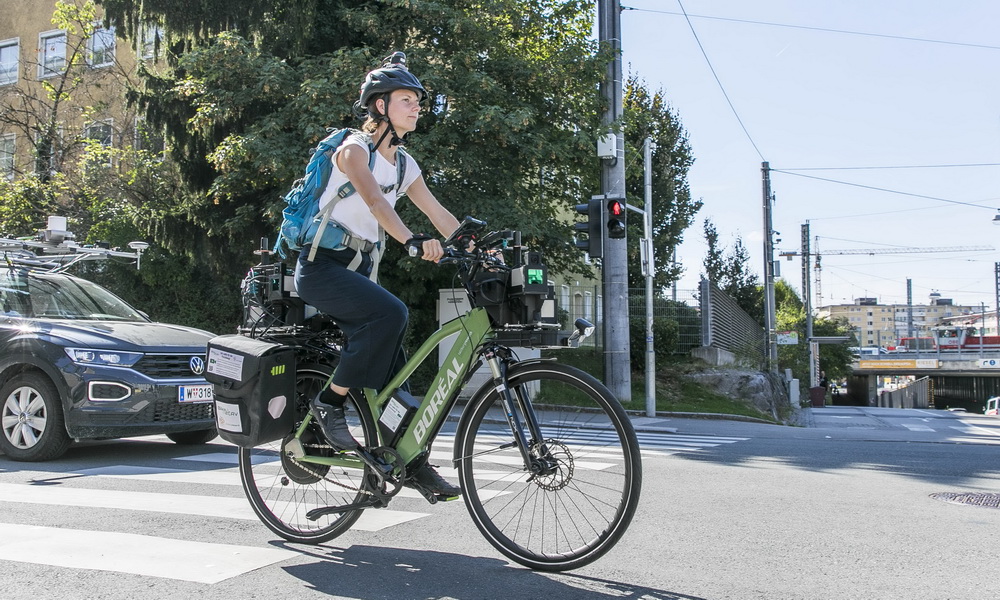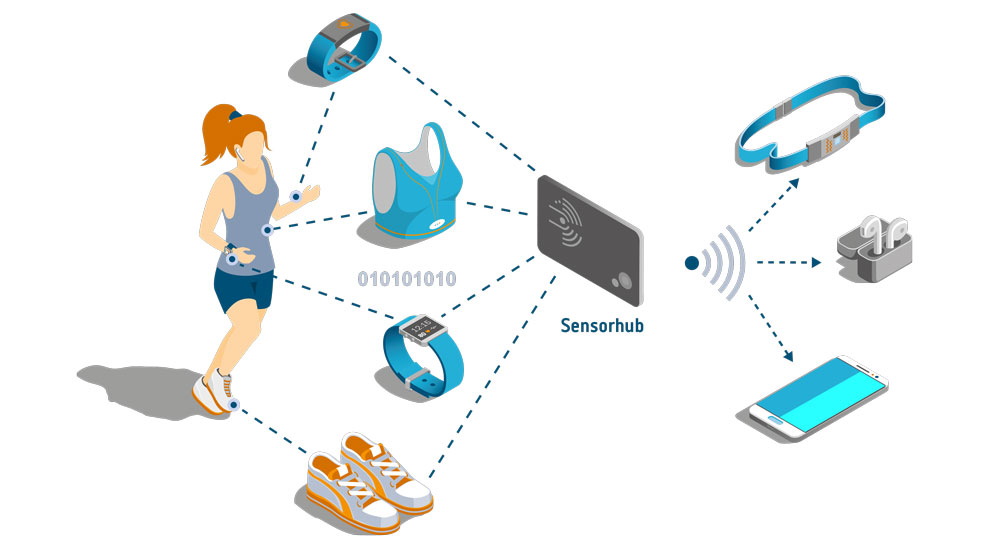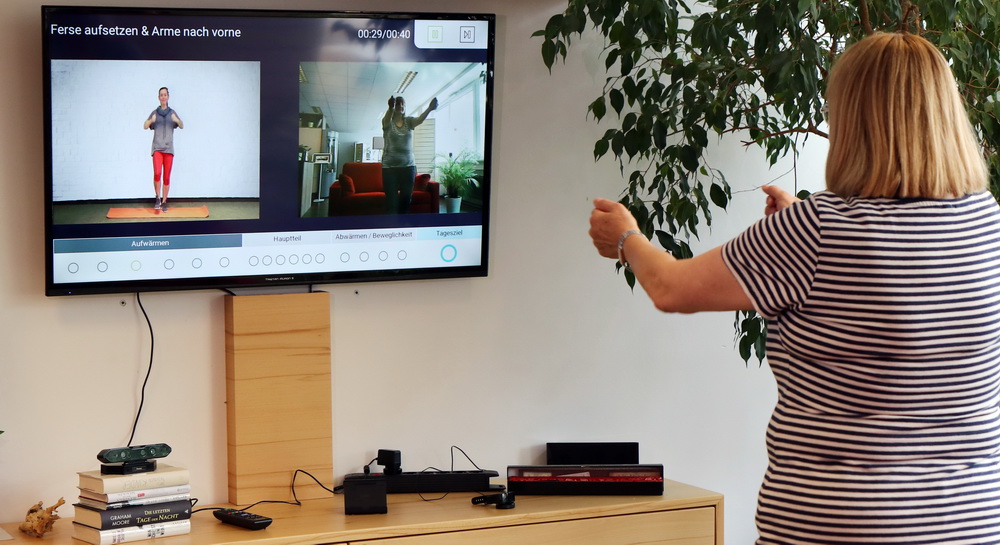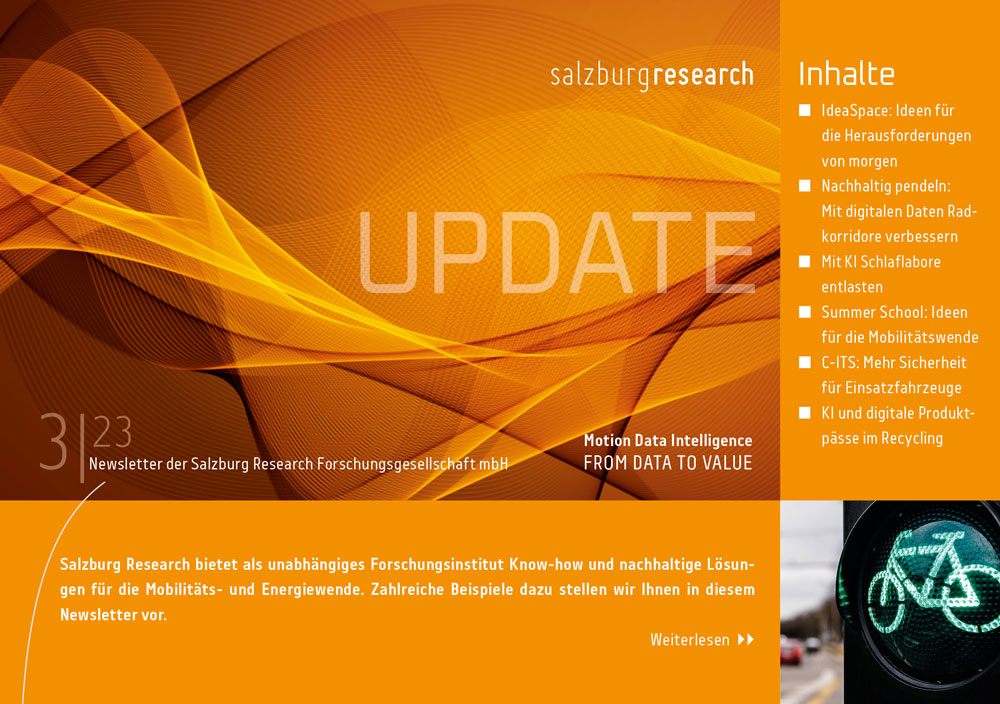
Finally solving the sleep problem – within your own 4 walls
More than 25 million people in German-speaking countries sleep badly – with serious consequences. An innovative app, the result of joint research by Salzburg Research and the University of Salzburg, aims to provide relief.
Constant accessibility, high work pressure, a pandemic and other stress factors: More and more people are not sleeping well as a result. At least a quarter of the population in industrialised countries – around 25 million people in Austria, Germany and Switzerland alone – suffers from poor or very poor sleep quality. “Too many people find it difficult to rest and believe they can save on sleep in order to gain time,” says Professor Manuel Schabus, a sleep researcher at the University of Salzburg. “They forget how central sleep is for the recovery of the immune system or even active tasks such as information storage.”
People who suffer from chronic insomnia symptoms, i.e. who have trouble sleeping for a long time, sleep through the night or wake up too early, have an increased risk of cardiovascular diseases, obesity and depression, resort to alcohol more often and have a lower life expectancy. The cost to the health system is enormous, increasing 3 to 10 times compared to a person who sleeps well. In the workplace, productivity drops by 10-13 per cent and there is more sick leave and accidents. On top of that, only about 15 per cent of sufferers seek medical help, often only getting medication for acute problems. “We have a societal sleep problem that is rampant and must finally be solved. With a little patience, every person can learn to sleep well,” sleep researcher Schabus continues.
A sleep lab for at home
Classic clinical sleep labs, where brain waves, breathing, muscle activity and eye movements are measured for sleep analysis, are often at capacity and have long waiting lists. In order to make it possible for everyone to have a sleep analysis at home, Salzburg researchers from the University of Salzburg and Salzburg Research have developed a new method for analysing sleep almost as precisely from only heart activity, which is measured at night with a simple sensor. Salzburg Research developed the algorithms behind this and integrated and evaluated the sensor technology for this new app.
That there is a relevant improvement in sleep quality was shown in a study conducted as part of the joint research project. In 50 test persons, the perceived quality of sleep improved by 30 percent, the frequency of waking up decreased by 65 percent and the time taken to fall asleep was reduced by 15 percent. Objective sleep parameters also improved noticeably over the course of therapy.
The technology is now available via the app NUKKUAA, which is offered by a spin-off of the University of Salzburg. Nukkua is Finnish and means sleep. The app offers sleep coaching in the form of info, exercises and tips to improve sleep in the long term.
Download from the app stores and at https://www.nukkuaa.com
Virtual Sleep Lab
The joint research project Virtual Sleep Lab – Virtuelles Schlaflabor was funded by the province of Salzburg/WISS 2025. The University of Salzburg was the consortium leader, and in addition to Salzburg Research, Das Gesundheitshaus GmbH and the Red Bull Athlete Performance Center were also involved.
Our offer:
Context-sensitive analysis of human movement data
We answer questions about evaluating the quality of human movement in order to increase the experience and well-being of various target groups. To do this, we rely on professional data recording in the familiar environment of the user as well as on the latest scientific methods. More information: Context-Sensitive Analysis of Human Movement Data








